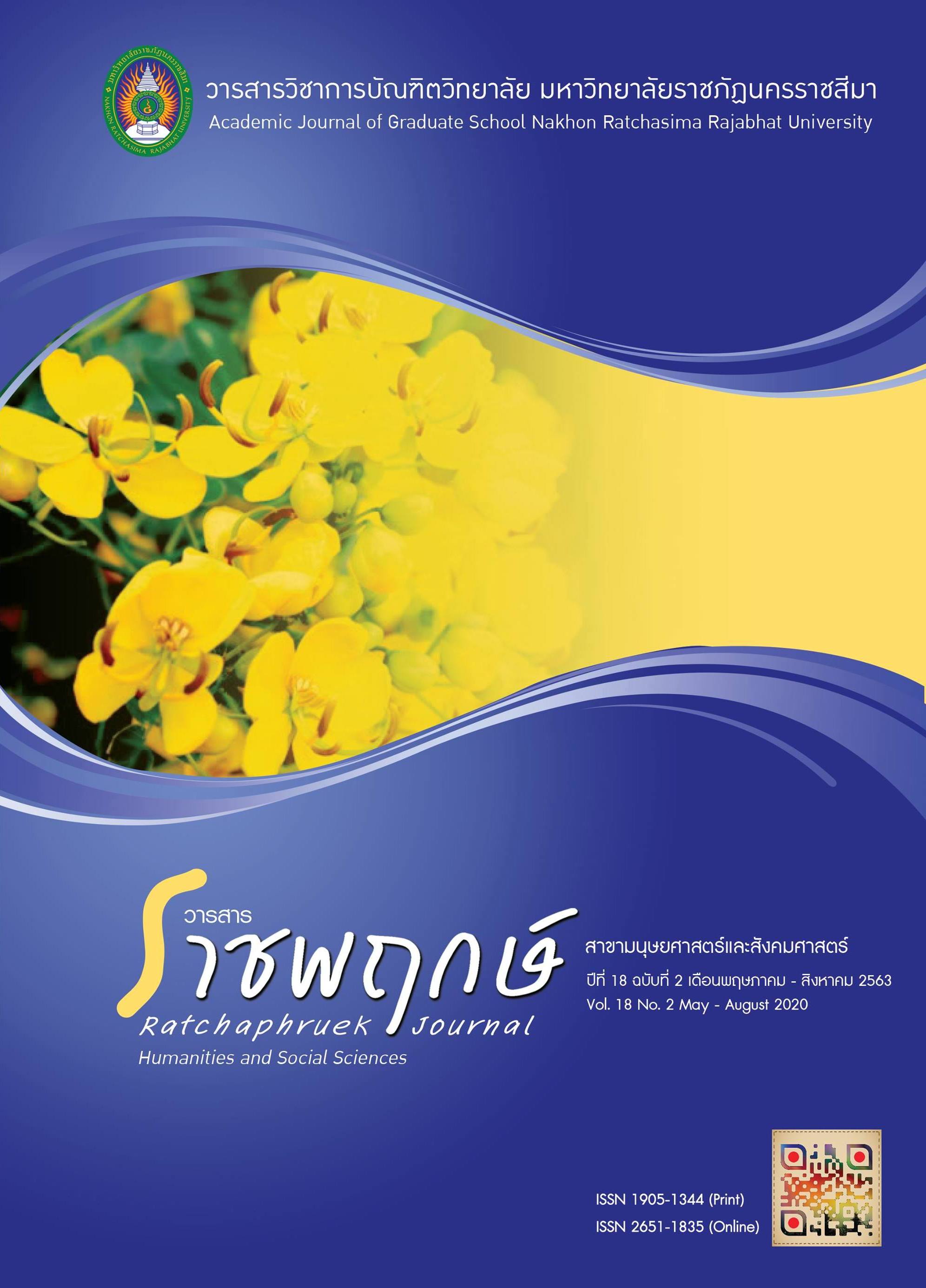Factors Related to Lifelong Learning Needs of the Elderly in Waeng Nang Sub-district, Mueang District, Maha Sarakham Province
Main Article Content
Abstract
The purposes of the research were to study the level of the requirement for lifelong learning of the elderly and to find the relationship between the personal factors of the elderly persons and the needs of lifelong learning at Waeng Nang sub-district, Mueang district, Maha Sarakham province. The sample group of the elderly who had 60 years old and above who are living in the community in total of 120 people. This was a questionnaire research. The data was analyzed by descriptive statistics; frequency, percentage, mean, and standard deviation, and chi-square test for inferential statistics. The research findings showed that; 1) the level of the needs for lifelong learning in the elderly people overall was at the middle level. When considering on the needs for each dimension subjects, it were found that the most requirements were the needs of saving, physical health and psychological health respectively, 2) the elderly factors and gender were related with the needs of lifelong learning in the mind adaption perspective, which was found significantly (p-value<0.05).Moreover, age, education level and income were also related with the needs of lifelong learning in the saving perspective was found significantly (p-value<0.05).Therefore, stakeholders who involved with the elderly’s life in community should be focus on lifelong learning management in elderly needs to develop the quality of life by emphasizing on the elderly people factors such as; sex, age, education level and income.
Article Details

This work is licensed under a Creative Commons Attribution-NonCommercial-NoDerivatives 4.0 International License.
References
pa.go.th.
ดรุณี พจนานุกูลกิจและคณะ. (2559). ยุทธศาสตร์และแนวทางในการเตรียมความพร้อมด้านแรงงานผู้สูงอายุเพื่อแก้ปัญหาวิกฤต
ทางด้านกำลังแรงงานไทยในอนาคต. Veridian E-Journal, Silpakorn University ฉบับภาษาไทย สาขามนุษยศาสตร์
สังคมศาสตร์และศิลปะ. 9(2): 576-596.
บุญชม ศรีสะอาด. (2535). การวิจัยเบื้องต้น. พิมพ์ครั้งที่2.กรุงเทพฯ : สุวีริยาสาส์น.
บุญรุ่ง จันทร์นาค. (2554). การออม. สืบค้นเมื่อ 21 ธันวาคม 2562, จาก https://www.sites.google.com/site/boonrung02 /home/hnwy-thi-3-kar-xxm
บุญธรรม กิจปรีดาบริสุทธิ์. (2540). สถิติวิเคราะห์เพื่อการวิจัย. พิมพ์ครั้งที่ 5. กรุงเทพฯ : เรือนแก้วการพิมพ์.
ปริยาภรณ์ ตั้งคุณานันท์. (2557). การศึกษาตลอดชีวิตสำหรับสังคมไทยสู่สังคมผู้สูงอายุ. วารสารครุศาสตร์อุตสาหกรรม
มหาวิทยาลัยราชมงคลธัญบุรี. 2(1):1-8.
มูลนิธิสถาบันวิจัยและพัฒนาผู้สูงอายุไทย. (2561). สถานการณ์ผู้สูงอายุไทย พ.ศ. 2561.สืบค้นเมื่อ 22 ธันวาคม 2562, จาก
http://www. dop.go.th.
โรงเรียนผู้สูงอายุเทศบาลเมืองวังน้ำเย็น. (2558). ความหมายของโรงเรียนผู้สูงอายุ. สืบค้นเมื่อ 20 ธันวาคม 2562, จาก
http://www.wangnamyen.net.
เวหา เกษมสุขและคณะ. (2562). แนวทางการส่งเสริมการเรียนรู้ตลอดชีวิตของโรงเรียนผู้สูงอายุ. วารสารพยาบาลตำรวจ. 11(2):
261-271.
สายสวาท เภตราสุวรรณ. (2555). แนวคิดเกี่ยวกับความต้องการของผู้สูงอายุ. วิทยานิพนธ์ปริญญาศึกษาศาสตร์มหาบัณฑิตสาขา
ประชากรศึกษามหาวิทยาลัยมหิดล.
สุดารัตน์ จ่าภา และคณะ. (2556). การศึกษาแนวการจัดการศึกษาตลอดชีวิตของชุมชนสำหรับผู้สูงอายุตำบลหนองฮี อำเภอหนองฮี
จังหวัดร้อยเอ็ด. วารสารมหาวิทยาลัยราชภัฏมหาสารคาม (มนุษยศาสตร์และสังคมศาสตร์). 7(1): 85-95.
อรอำไพ บุรานนท์. (2554). แนวทางการส่งเสริมการเรียนรู้ตลอดชีวิตตามความต้องการของผู้สูงอายุศูนย์บริการผู้สูงอายุดินแดงสังกัด
กรุงเทพมหานคร. ปริญญานิพนธ์การศึกษาผู้ใหญ่. กรุงเทพฯ บัณฑิตมหาวิทยาลัย มหาวิทยาลัยศรีนครินทรวิโรฒ.
อาชัญญา รัตนอุบลและคณะ. (2555). การพัฒนาแนวทางการส่งเสริมการจัดการศึกษา/การเรียนรู้เพื่อการพัฒนาศักยภาพผู้สูงอายุ.
วารสารครุศาสตร์. 40(1): 14-28.


